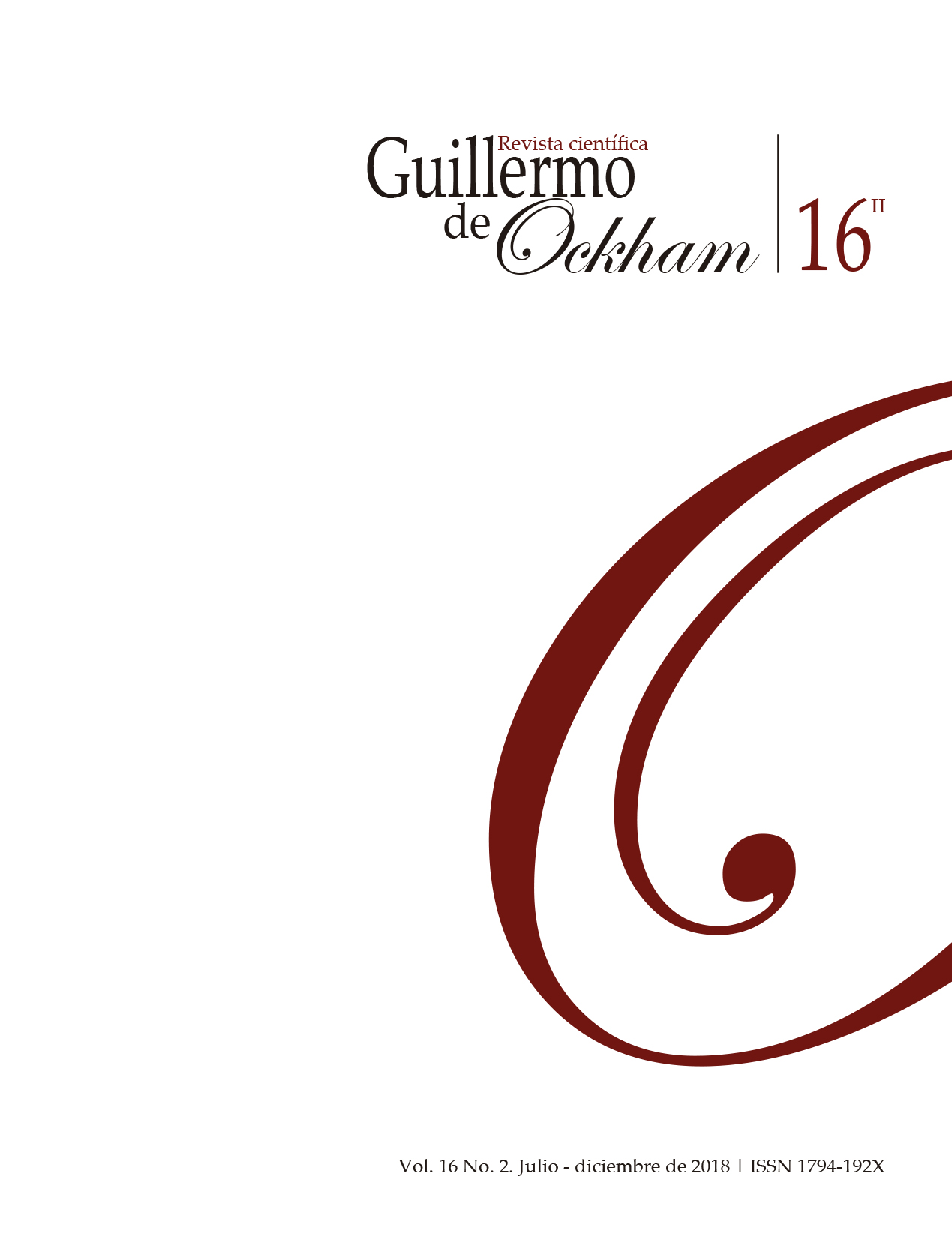La Revista Guillermo de Ockham brinda un acceso inmediato y abierto a su contenido, basado en el principio de ofrecer al público un acceso gratuito a las investigaciones para brindar un intercambio global de conocimiento. A menos que se establezca lo contrario, el contenido de esta revista tiene una licencia con Creative Commons Attribution-NonCommercial-NoDerivatives 4.0 International (CC BY-NC-ND 4.0) http://creativecommons.org/licenses/by-nc-nd/4.0/
- Atribución: debe otorgar el crédito correspondiente, proporcionar un enlace a la licencia e indicar si se realizaron cambios. Puede hacerlo de cualquier manera razonable, pero no de ninguna manera que sugiera que el licenciante lo respalda a usted o su uso.
- No comercial: no puede utilizar el material con fines comerciales.
- Sin derivados: si remezcla, transforma o construye sobre el material, no puede distribuir el material modificado.
- Sin restricciones adicionales: no puede aplicar términos legales o medidas tecnológicas que restrinjan legalmente a otros de hacer cualquier cosa que permita la licencia.
Resumen
This paper is devoted to analyse the problem of animals in Ortega y Gasset and the mature Wittgenstein philosophies. The main conclusion is we should prefer the approach of Wittgenstein because it affords a discontinuous continuity picture -a degree continuity- between animals and human beings that explains better our epistemic and moral attributions to animals.
Referencias
J. Ortega y Gasset, La caza y los toros, Madrid, Revista de Occidente, 1960.
L. Wittgenstein, Lectures and Conversations on Aesthetics, Psychology and Religious Belief, Oxford, Basil Blackwell, 1966.
L. Wittgenstein, Philosophical Investigations, Oxford, Wiley Blackwell, 1966.
L. Wittgenstein, Zettel, Oxford, Basil Blackwell, 1967.
L. Wittgenstein, On Certainty, Oxford, Basil Blackwell, 1969.
































